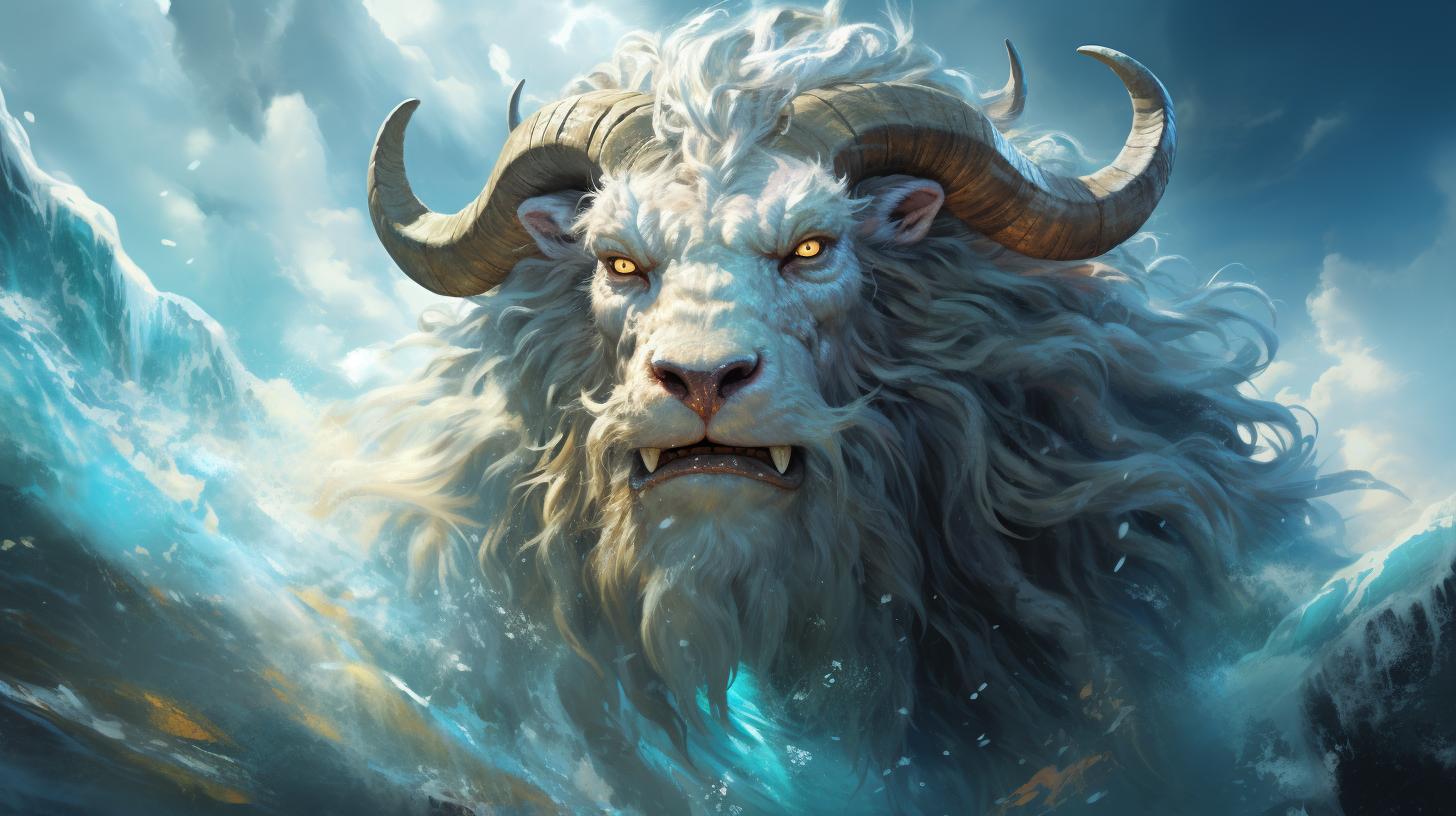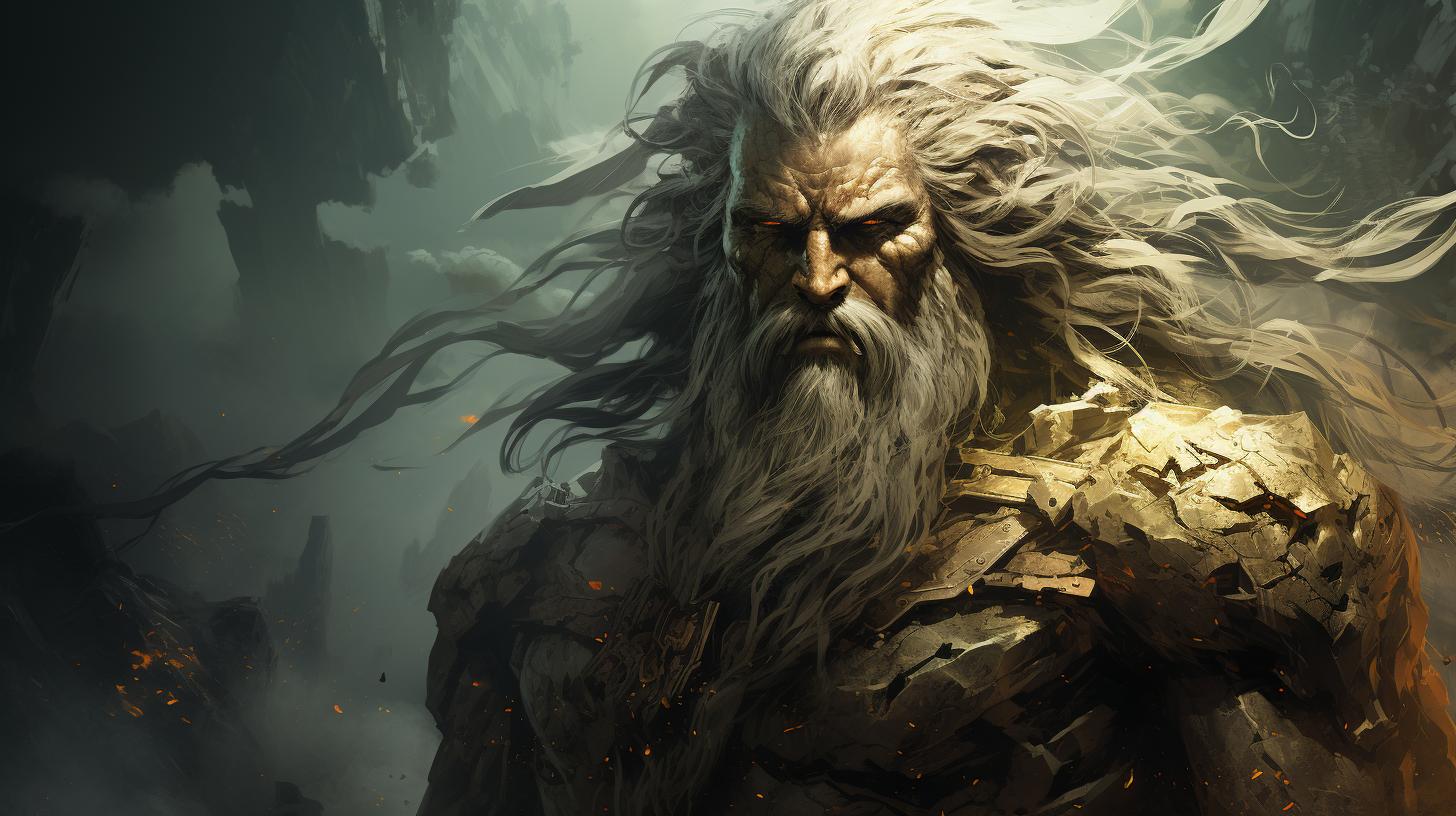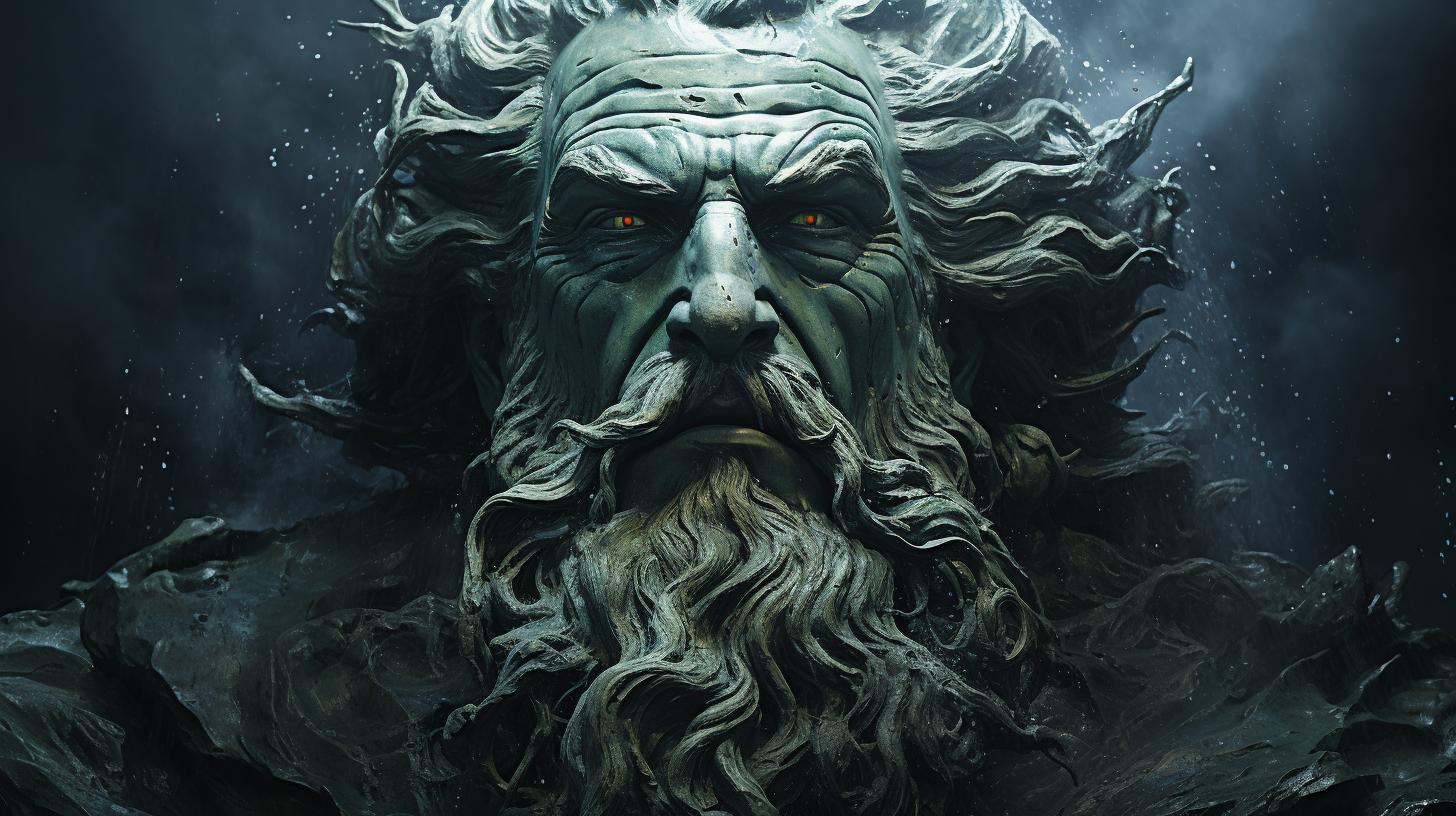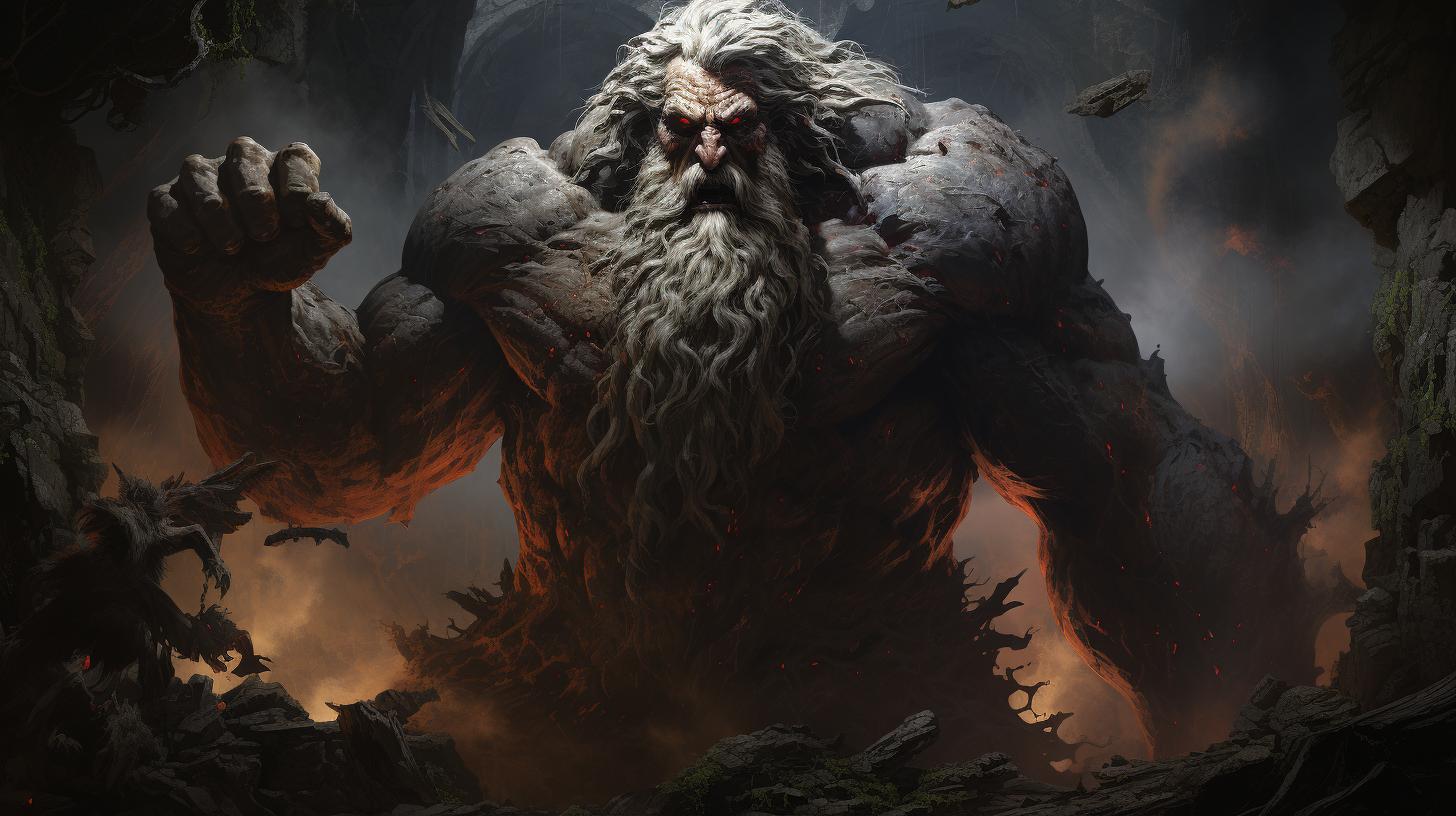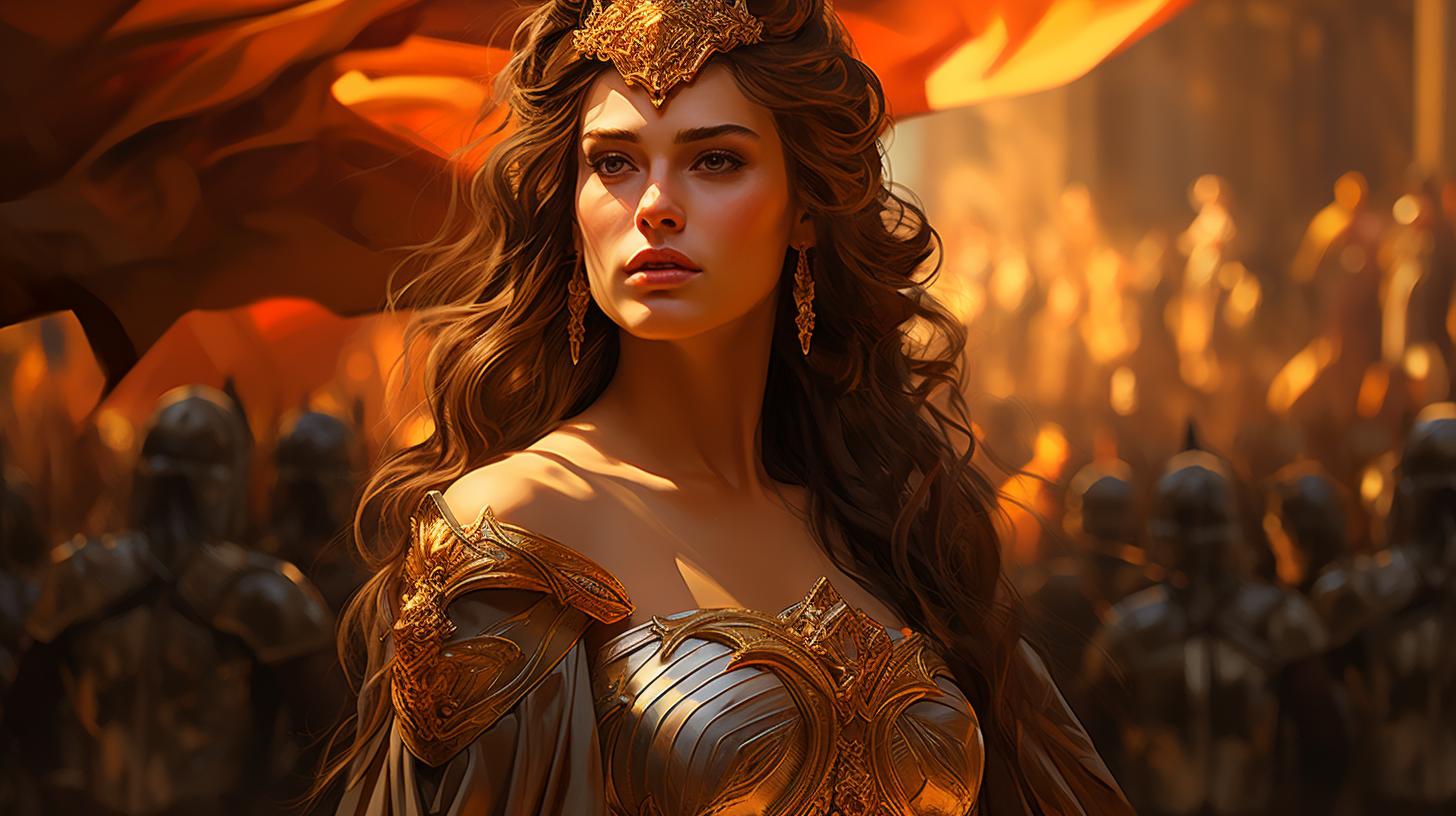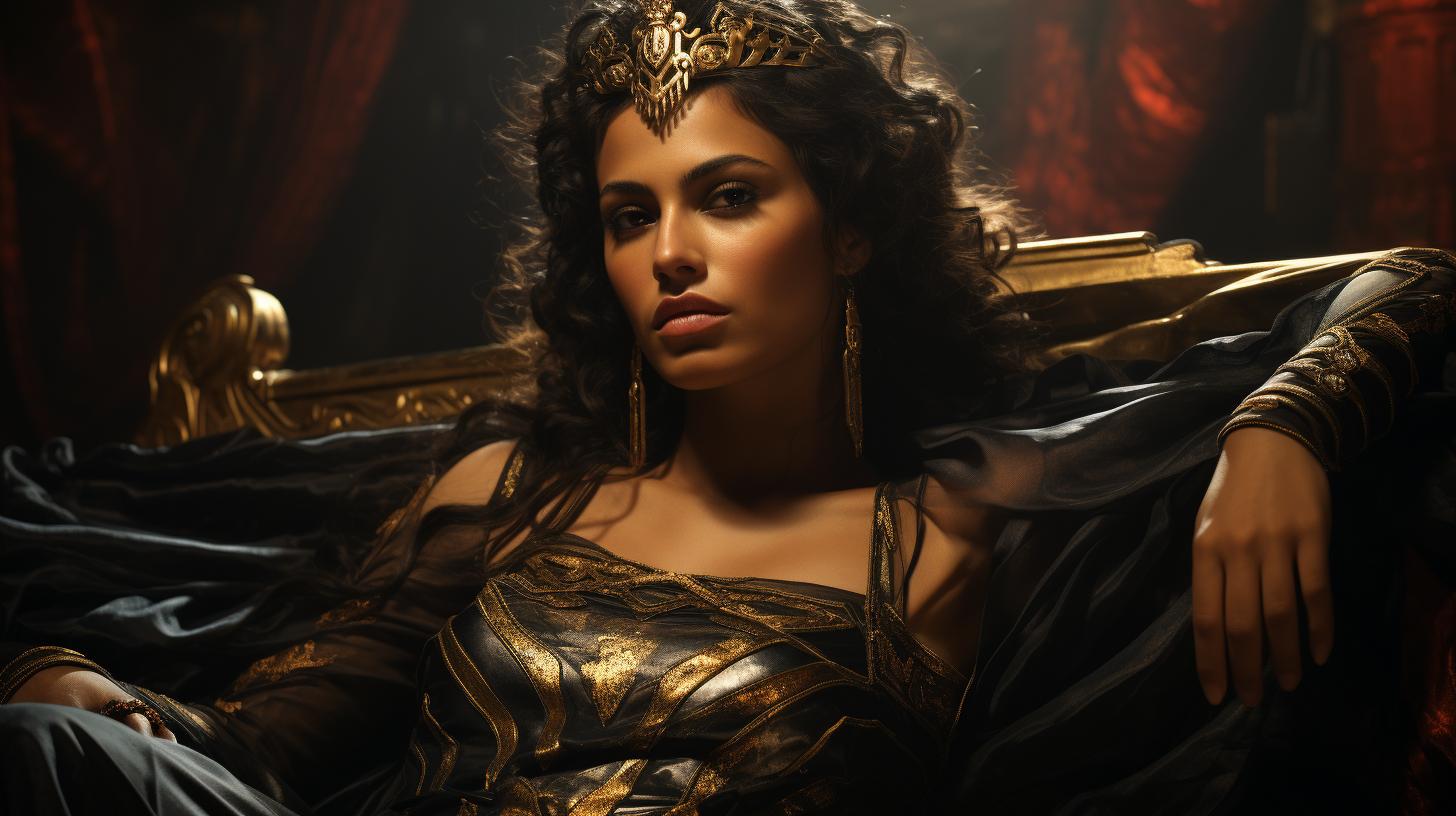Pricus Greek Mythology: The Time-Ruling Sea-Goat and its Immortal Legacy
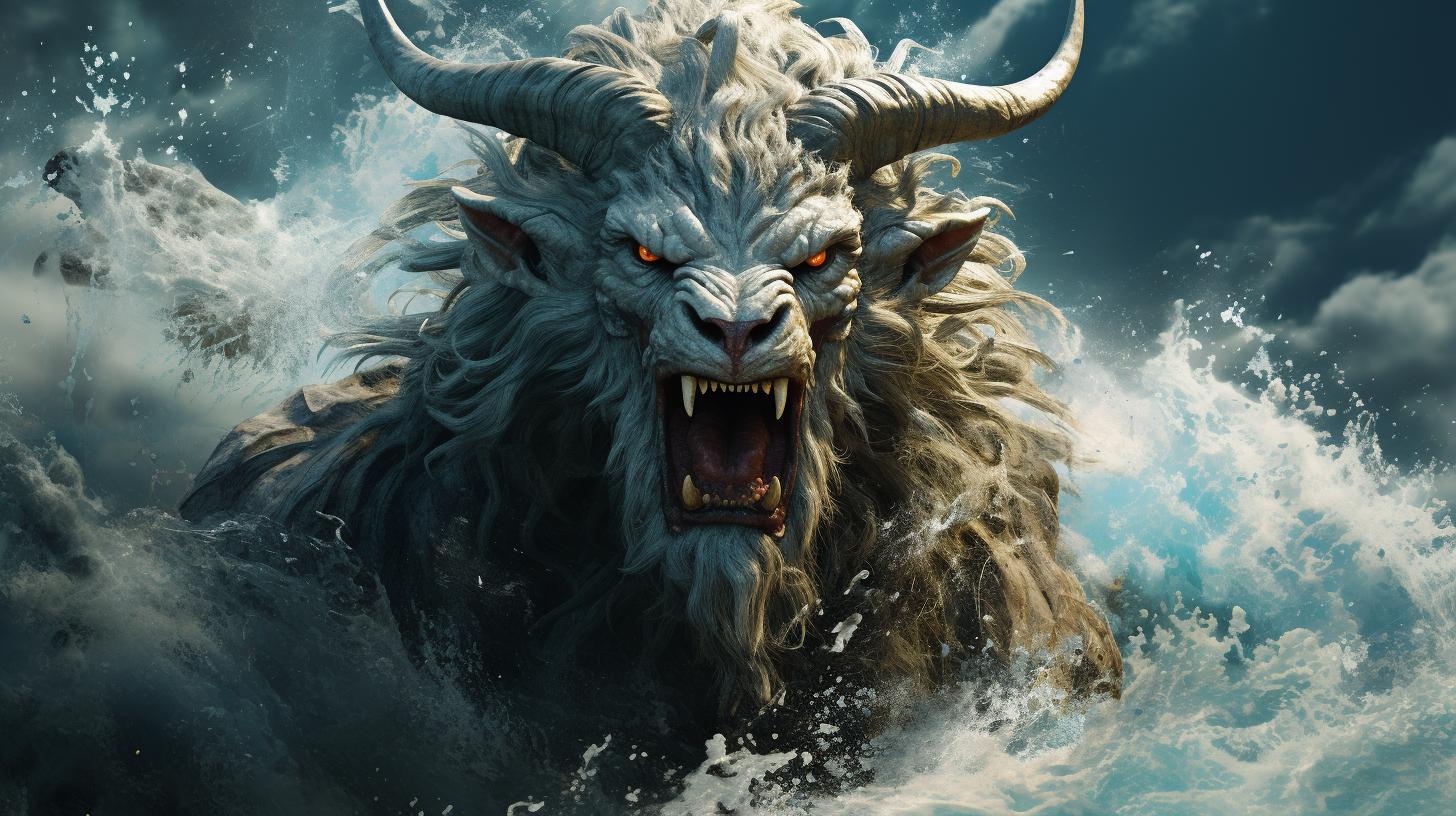
The myth of Pricus in Greek mythology centers around a significant figure associated with the constellation of Capricorn. Pricus, a half-goat, half-fish being, ruled over time and possessed the gift of eternal life.
He had children known as sea-goats, who shared his intelligence but were inclined to leave the sea and become ordinary goats on land. Despite Pricus’s attempts to preserve their true nature, his children inevitably chose the earthly path.
Ultimately, Pricus turned to Cronos, the god of time, for help and was transformed into the Capricorn constellation, keeping watch over his descendants.
The Myth of Pricus in Greek Mythology
In Greek mythology, Pricus holds a significant place as a mythical figure associated with the constellation of Capricorn. Known as the Time-Ruling Sea-Goat, Pricus was a unique being, half-goat and half-fish, who governed time itself.
He holds a captivating story filled with elements of creation, fatherhood, and profound philosophical dilemmas. Let’s delve into the fascinating myth of Pricus and explore the various aspects that make it a compelling piece of Greek mythology.
Pricus was not just an ordinary sea-goat; he was the pioneer of the sea-goat species, and his existence was destined to be intertwined with the fate of his remarkable offspring.
His children, intelligent sea-goats, possessed the power of speech and shared his features. However, while Pricus found solace in the vast sea, his children yearned for life on land, compelling them to abandon their sea-goat nature and transform into regular goats with limited intelligence.
Driven by relentless determination, Pricus attempted numerous times to reverse the irreversible flow of time to keep his children by his side, hoping to preserve their true essence as remarkable sea-goats.
Despite his fervent efforts, his attempts proved futile, and each time his children decided to return to land and shed their sea-goat abilities. Pricus watched helplessly as his offspring took on the form of ordinary goats and lost the wisdom that distinguished them.
Feeling helpless and burdened by the anguish of being the sole remaining sea-goat, Pricus sought solace in Cronos, the god of time, who was responsible for his creation. Pricus pleaded with Cronos to grant him the freedom of mortality, as he could no longer bear the pain of being the lone immortal sea-goat.
However, instead of granting Pricus his wish, Cronos immortalized him in a different form, transforming him into the magnificent Capricorn constellation that adorned the night sky. From this celestial vantage point, Pricus could watch over his descendants, even from the highest peaks of the mountains.
The myth of Pricus carries multiple layers of meaning and symbolism. It sheds light on the themes of destiny, the passing of time, the complexities of parenthood, and the inevitability of change.
Pricus’s story encapsulates the eternal struggle between an individual’s desire to control their fate and the overwhelming forces that govern the universe.
Pricus: The Time-Ruling Sea-Goat
The mythology of Pricus is a fascinating tale rooted in Greek mythology. Pricus, the unique creature known as a time-ruling sea-goat, held a significant role in ancient Greek lore. This section explores the origins and the pivotal role Pricus played in Greek mythology, as well as delving into details about his intelligent sea-goat children and his desperate attempts to reverse time.
Origins and Role in Greek Mythology
Pricus, as an enigmatic figure, emerged as an important character associated with the majestic constellation of Capricorn. Legends depict him as a half-goat, half-fish being, revered for his wisdom and leadership as the ruler of time.
His origin story intertwines with the mysterious fabric of Greek mythology, evoking intrigue and fascination.
Pricus’s Children: Intelligent Sea-Goats
One of the captivating aspects of Pricus’s story lies in his progeny – the intelligent sea-goats. Similar to their father, these sea-goats possessed the ability to speak and exhibit remarkable intellect.
However, their curiosity and desire to explore the land led them to forsake their true nature and become ordinary goats. This section explores the traits and characteristics of Pricus’s extraordinary offspring.
Pricus’s Attempts to Reverse Time
The relentless efforts of Pricus to reunite with his sea-goat children serve as a captivating tale within Greek mythology. Despite his attempts to turn back the hands of time and prevent his children’s transformation, Pricus repeatedly faced disappointment.
This section delves into the poignant story of Pricus’s struggles and his realization that he could not alter his children’s destiny.
Pricus’s Relationship with Cronos, the God of Time
The bond between Pricus and Cronos, the mighty god of time, is an intriguing aspect of Greek mythology. Let’s explore how Pricus sought Cronos’s assistance and the transformative outcome that followed.
Seeking Help from Cronos
In his desperation, Pricus turned to his creator, Cronos, in the hope of finding a solution to his immortal existence and the fate of his offspring. He beseeched Cronos for help, pleading to be released from his eternal existence.
In this pivotal moment, Pricus implored Cronos to grant him the liberation of death, as the weight of being the sole remaining sea-goat became unbearable. However, Cronos had a different destiny planned for Pricus.
Transformation into the Capricorn Constellation
In an act of divine intervention, instead of fulfilling Pricus’s request, Cronos chose to immortalize him in the night sky, transforming him into a constellation of stars known as Capricorn. From this celestial vantage point, Pricus could forever watch over and protect his sea-goat offspring.
The Capricorn constellation became a testament to Pricus’s connection with time itself. As the ancient Greek legends were passed down through generations, the constellation stood as a celestial reminder of Pricus’s eternal presence and his lineage.
With the transformation complete, Pricus now had the ability to overlook his children as they roamed the Earth, even from the highest mountaintops. He became a guardian figure, forever observing and ensuring their well-being.
Through this divine act, Pricus’s bond with Cronos was solidified, forever intertwining their roles in the realms of mythology and time. Pricus, now a constellation of stars, had a newfound purpose in guiding and protecting his sea-goat descendants.
Pricus’s Legacy: Observing and Protecting His Children
Within the realm of Greek mythology, Pricus’s tale extends beyond his role as a time-ruling sea-goat. As a devoted father, he left a lasting legacy through his descendants and his profound influence on the Capricorn zodiac sign.
Pricus’s Descendants: The Sea-Goats
Pricus, being the first of the sea-goats, bestowed upon his offspring the ability to speak and reason. These sea-goats, similar to their father, possessed intelligence and honesty. Residing in the sea near the shoreline, they interacted with other marine creatures, exhibiting their noble characteristics and forming harmonious relationships.
Yet, as time passed and they ventured onto land, their transformation began. Gradually, they lost their capacity for speech and reasoning, their magnificent tails turning into ordinary hind legs with hooves.
Pricus, determined to preserve their original form, attempted to reverse time countless times, but to no avail. Despite his efforts, fate intervened, and his children chose to embrace life as ordinary goats.
Pricus’s Influence on Capricorn Zodiac Sign
The legacy of Pricus extended beyond his children, as his connection with Cronos, the god of time, resulted in his impact on the Capricorn zodiac sign. Capricorn is often depicted as a goat or a sea-goat, representing Pricus’s lineage and influence.
Closely tied to the concept of time, Pricus’s association with Chronos granted him the ability to manipulate time itself. This connection bestowed upon Capricorn characteristics such as discipline, ambition, and a strong sense of responsibility.
The sea-goat’s influence is evident in the ambitious nature and unwavering determination commonly attributed to those born under the Capricorn zodiac sign.
Through the presence of Capricorn as a recognized zodiac sign, Pricus’s legacy remains alive, symbolizing the importance of responsibility, hard work, and honoring ancestral lineage.
Pricus in Greek Mythology vs. Other Mythological Gods
In the rich tapestry of Greek mythology, Pricus stands out as a unique and fascinating figure. Let’s delve into a comparison between Pricus and other gods from Greek mythology, as well as explore the contrasts with gods from Norse and Roman mythology.
This exploration will shed light on the distinct qualities and significance of Pricus within the realm of ancient myths.
Comparisons with Greek Mythology Gods
When comparing Pricus with other gods in Greek mythology, we encounter both similarities and differences. While Pricus shares divine qualities and immortality with many Greek gods, his half-goat, half-fish form sets him apart.
The rulership of time and connections to sea creatures highlight Pricus’s distinctive role.
- Similarities:
- Pricus shares immortality with gods like Zeus, Poseidon, and Apollo.
- Like Hermes, Pricus possesses the ability to communicate and interact with creatures.
- Differences:
- Pricus’s hybrid form distinguishes him from gods who typically appear in human or animal forms.
- Unlike the more well-known gods, Pricus’s influence extends specifically to sea-goats and their unique characteristics.
Contrasts with Norse and Roman Mythology Gods
Exploring beyond Greek mythology, let’s examine the contrasts between Pricus and gods from Norse and Roman mythology.
This exploration reveals the distinct mythological perspectives and realms where these deities reside.
- Norse Mythology:
- Pricus displays a stark contrast to Norse gods such as Odin, Thor, and Loki, who inhabit a different pantheon and are associated with different powers and realms.
- While Norse gods possess significance in realms of war, thunder, and trickery, Pricus’s domain remains rooted in time and the sea.
- Roman Mythology:
Through these comparisons and contrasts, we gain a deeper understanding of Pricus’s role in Greek mythology and his unique place among gods from different mythologies.
Pricus’s hybrid nature and control over time set him apart, making his story and influence all the more intriguing within the vast pantheon of gods.
Exploring Greek Mythology God Names
Notable Gods in Greek Mythology
Greek mythology is renowned for its vast pantheon of gods and goddesses, each with their unique attributes and stories. Here are some of the notable gods that play significant roles in Greek mythology:
- Zeus: The king of the gods, Zeus, wields thunderbolts and governs the sky and weather.
- Poseidon: As the god of the sea, Poseidon controls the oceans and is often depicted with his trident.
- Hades: Ruler of the underworld, Hades presides over the realm of the dead.
- Apollo: The god of music, prophecy, and healing, Apollo is associated with the sun and is a master archer.
- Athena: Goddess of wisdom, Athena embodies strategic warfare, crafts, and intellect.
- Aphrodite: Known as the goddess of love and beauty, Aphrodite represents desire and passion.
Mythological Stories and Symbols
Each god in Greek mythology has their distinct narratives and symbolic representations.
These stories and symbols enhance their character and provide deeper insights into their role in the Greek pantheon. Here are a few examples:
Zeus and His Thunderbolts
Zeus, the supreme ruler of Mount Olympus, wields thunderbolts as symbols of his power and authority. These bolts of lightning represent his control over the skies and demonstrate his ability to shape the mortal realm.
Poseidon’s Trident
Poseidon, the god of the sea, possesses a trident, a three-pronged spear. This mighty weapon embodies his authority over the ocean’s depths and grants him dominion over tides, storms, and earthquakes.
Athena’s Owl
Athena, goddess of wisdom, is often accompanied by an owl, which symbolizes her knowledge and discernment. The owl’s association with wisdom reinforces Athena’s role as a wise and strategic deity.
Aphrodite’s Dove
Aphrodite, the goddess of love and beauty, is frequently depicted with a dove, representing love, peace, and the elegance associated with her divine influence.
These are just a few examples of the countless myths and symbols found within Greek mythology.
Each god offers a unique story and set of attributes that contribute to the rich tapestry of this ancient mythology.
Unraveling the Mysteries of Pricus: FAQs
Who was Pricus in Greek Mythology?
Pricus was an important figure in Greek mythology, known as the time-ruling sea-goat. He was the first of the sea-goats and had the ability to live eternally. Pricus was the father of intelligent sea-goat offspring who eventually turned into ordinary goats when they went to land.
Despite his efforts to prevent them from leaving the sea, Pricus could not change their fate.
What were Pricus’s Powers and Characteristics?
Pricus possessed the power of time manipulation, attempting to reverse the flow of time to keep his children with him in the sea. However, each time he reversed time, his offspring still chose to venture to land.
Pricus ultimately accepted their destiny, becoming the protector of his descendants as the Capricorn constellation in the night sky.
How does Pricus Relate to the Capricorn Zodiac Sign?
Pricus is closely tied to the Capricorn zodiac sign. In Greek mythology, he is the father of the sea-goats who inspired the representation of Capricorn as a goat with a fish tail.
Pricus’s story reflects the themes of responsibility, destiny, and the struggle between the sea and the land.
Are there Similar Figures in Other Mythologies?
While Pricus is unique to Greek mythology, there are similar hybrid creatures in other mythologies. For example, in Norse mythology, there is the sea-dwelling creature called the “Kraken,” often depicted as a giant squid.
Roman mythology, on the other hand, features the god Neptune, who rules over the sea and its creatures.
.

